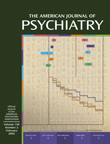To the Editor: Dr. Sernyak et al. claimed that their results failed to support the hypothesis that clozapine treatment is associated with significantly fewer deaths due to suicide. The effect of clozapine on all causes of mortality, including suicide, was compared in a study with a group chosen by the use of “propensity scaling,” a potentially problematic method that has severe limitations in this instance. It is a matter of concern that the variables available for subject matching did not include the four most important characteristics necessary for matching for suicide risk, i.e., the number, timing, and lethality of prior suicide attempts and the severity of depression at index admission. None of the variables used to create the comparison group, with the exception of substance abuse, is relevant to suicidality. This makes it difficult to be confident that the two groups had equivalent risks for suicide.
Dr. Sernyak et al. used data from a study by a colleague and me (Meltzer and Okayli, 1995) to conclude that treatment resistance is the most relevant factor in the matching process even though our finding was that there was no difference in the rate of suicidality between treatment-resistant and nonresistant patients. Furthermore, because the Department of Veterans Affairs (VA) policy of minimizing the use of clozapine led to clozapine use in 1% versus 6%–8% of non–VA patients with schizophrenia, the clozapine-treated patients in this study may not be representative of general users of clozapine in four previous studies (Meltzer and Okayli, 1995; Walker et al., 1997; Reid et al., 1998; and Munro et al., 1999) that showed a 70%–86% decrease in the rate of suicide attempts or completions.
However, what is even more troublesome is that the authors assumed that any effect of clozapine on suicide, no matter how briefly clozapine was administered, should be expected to decrease the rate of suicide for up to 6 years! Dr. Sernyak et al. included all of the patients with schizophrenia who received clozapine through the VA for any period of time between fiscal years 1992 and 1995. They used the National Death Index to determine all causes of death, including suicide, from the time the patients started clozapine treatment until Dec. 31, 1998. Thus, they included patients who were treated with clozapine for less than 12 months or for an unknown period of more than 12 months during 1992–1998, whereas they could easily have restricted their analysis to the time in which clozapine was prescribed to the patients. An unknown number of patients in the clozapine-treated groups—probably the majority—were not taking clozapine for most of the outcome period.
Nevertheless, the authors still concluded that clozapine reduced the rate of suicide, which they failed to bring to the attention of readers. According to Table 2 in their article, five of 1,018 patients treated with clozapine for more than 12 months committed suicide, compared to 23 of 2,380 of the subjects in the comparison group (χ2=2.77, df=1, p=0.10). Given that four previous studies indicated that clozapine reduced the rate of suicide by 70% to 86%, it is unfortunate that the authors chose not to call attention to their finding that, at the least, constitutes a strong trend to support the idea that clozapine reduces the rate of suicide. In any event, since a change of one or two in the number of suicides in either group would dramatically change the results in this analysis, this study does little to affect confidence in the abundant evidence that clozapine reduces the suicide rate.

